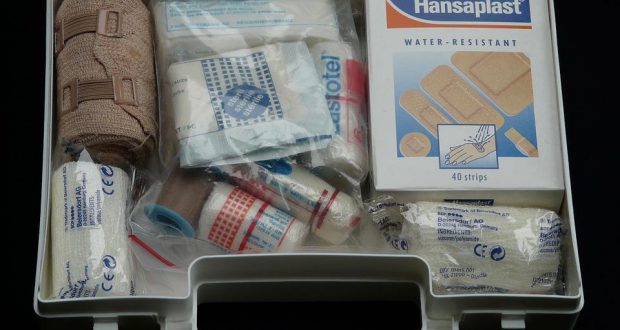Travelling and vacations are always exciting, and fun as winter comes with adventures like hiking, skiing, sledding, snowshoeing, etc. However, as much as travelling during the winter seasons can be exciting; it can also be unpleasant if you do not prepare well.
It is vital to have safety measures to reach and leave your destination in one piece without trouble. This is because the winter season comes with many things as you can be affected by ice, sleet, snow, freezing rain, etc.
Knowing specific safety measures for winter travel is essential for those travelling by air or on the road. If you are driving, you should know how to deal with the problems that come with winter.
Before looking at the first aid materials for winter, let’s look at some of the significant challenges of travelling during winter. They include:
- Starting the car can be a challenge due to heavy snowfall
- Poor visibility
- The roads can be hazardous as they are fully covered with snow
- Slippery slush which is very dangerous
- Protecting windshields from fogs and ice
- Dry skins as a result of a change in climate condition
- Damage to the vehicle by storm with heavy snow blocks
- Flight delays
Safe travels during winter require you to carry a few things. Below are some of the first aid materials you need to pack to travel safely during winter.
1. Extra Layers
When travelling during winter, characterized by extreme cold, always pack extra layers. The Winter season can be unpredictable, and your clothes can get wet; in that case, you can use extra layers because staying in the cold can be dangerous. Extreme cold can cause you to contract your blood vessels, which can lead to an increase in blood pressure, thus increasing the risk of a heart attack.
The extra layers can be other sweaters, gloves, jackets, snow pants, scarves, etc.
2. Thermal blankets
When travelling and on vacations, anything can happen. Because the winter has slippery slush and snow, you might slip and maybe twist an ankle and become immobile and call for help. The thermal blanket can be your best friend as you wait for the emergency team to arrive, and it will help you reduce heat loss from your body.
3. Survival Shack/emergency shelter
Technological advancements have seen the development of unique and amazing things that can increase survival chances during emergencies, like survival shacks. This is a lightweight emergency shelter that can easily be set up, and it is effortless to pack and accommodate two people.
You would want to add this material for preparation for any worst scenario, like staying overnight.
4. Food and water
Any travel and vacation cannot be complete without carrying non-perishable food and some water. You can prepare and pack foods like beef jerky, dehydrated fruits, and any other food rich in protein. Carry as much water as you can because you don’t know how the journey will be.
If you run out of water supply, you can put some snow in a water bottle and warm it by using your body heat or fire to melt it to get more water.
5. First aid kit
During travels, accidents happen. But when they do happen, make sure you have a fully-equipped first aid kit.
If you have any condition like common STDs, ensure you pack the medications prescribed by your health practitioner in your first aid kit.
Anytime you have winter adventures, the first thing you should pack is a first aid kit, and it will help you treat your injuries.
6. Shovel
It might stack in the snow if you’re travelling in a car, and carrying a shovel will help you dig it out with ease.
7. Fire starting kit
Travelling during winter comes with many uncertainties. You might get stuck and have to spend a night in the cold, and you’ll need to keep warm. So, before stepping out, make sure you pack along with a fire-starting kit that contains waterproof matches, kindling/tinder, sandpaper, etc.
8. Flashlight
You might get lost in the woods, and dark catch you there. Because of such scenarios, it is prudent to carry a flashlight.
9. AED
Packing things that can help in heart-related emergencies is essential because you can develop conditions like cardiac arrest.
Taking precautions while travelling during winter is essential. The only way to take precautions is to carry along first aid things to help you during emergencies.
 Trip Alertz For Jetsetters, By Jetsetters
Trip Alertz For Jetsetters, By Jetsetters



